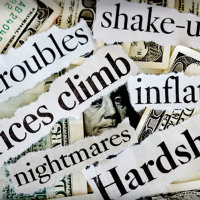The Future of the Welfare State
Over the past few years, the advanced democracies of the world have suffered a series of painful economic upheavals. While still quite prosperous by the standards of history, modern individuals and modern nations look to the future with anxiety and uncertainty—fueled by rising national debt burdens, aging populations, and rapid economic changes that make existing industries and jobs quickly obsolete. And while the political debates rage on about what to do—more government or less government, more competition or more regulation—very few nations have enacted policy reforms that are sensible and sustainable for the decades ahead.
This seminar will focus on the dilemmas and possibilities of the modern welfare state. James Capretta, a resident scholar at the Ethics and Public Policy Center and former senior official at the U.S. Office of Management and Budget, will explore some of the concrete policy challenges that modern democracies now face—including the coming demographic shift to a more elderly population, competing theories of job creation and economic growth, ideas about monetary policy after the financial crash, and alternative approaches to health care and entitlement reform. All these concrete issues will be seen as part of a larger question: What is the future of the welfare state, and what does it mean for who we are and how we live?
Key Texts & Topics
- “Beyond the Welfare State,” Yuval Levin, National Affairs
- “An Optimist’s Guide to Repeal and Replace,” Paul Ryan, Hoover Institution
- “The Problem with Printing Money,” James Pethokoukis, Commentary
- “The Real Cliff,” Christopher DeMuth, The Weekly Standard
- “Recasting Conservative Economics,” James C. Capretta, National Affairs


 James C. Capretta, a Senior Fellow at the Ethics and Public Policy Center, studies and provides commentary on a wide range of public policy and economic issues, with a focus on health-care and entitlement reform, U.S. fiscal policy, and global population aging. Capretta served in senior positions in the executive and legislative branches of the federal government for sixteen years. …
James C. Capretta, a Senior Fellow at the Ethics and Public Policy Center, studies and provides commentary on a wide range of public policy and economic issues, with a focus on health-care and entitlement reform, U.S. fiscal policy, and global population aging. Capretta served in senior positions in the executive and legislative branches of the federal government for sixteen years. …